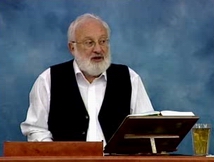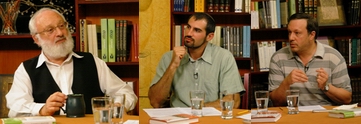
Together Forever
A Story for Children & Parents by Michael Laitman
In Together Forever, the author tells us that if we are patient and endure the trials we encounter along our life’s path, we will become stronger, braver, and wiser. Instead of growing weaker, we will learn to create our own magic and our own wonders as only a magician can.
In this warm, tender tale, Michael Laitman shares with children and parents alike some of the gems and charms of the spiritual world. The wisdom of Kabbalah is filled with spellbinding stories. Together Forever is yet another gift from this ageless source of wisdom, whose lessons make our lives richer, easier, and far more fulfilling.
Together Forever by Michael Laitman
* Free PDF eBook Download
* Purchase Hard-Cover Book at the Kabbalah Bookstore
Click Here to Sign Up for a Free Kabbalah Introductory Course – Starts Soon!



